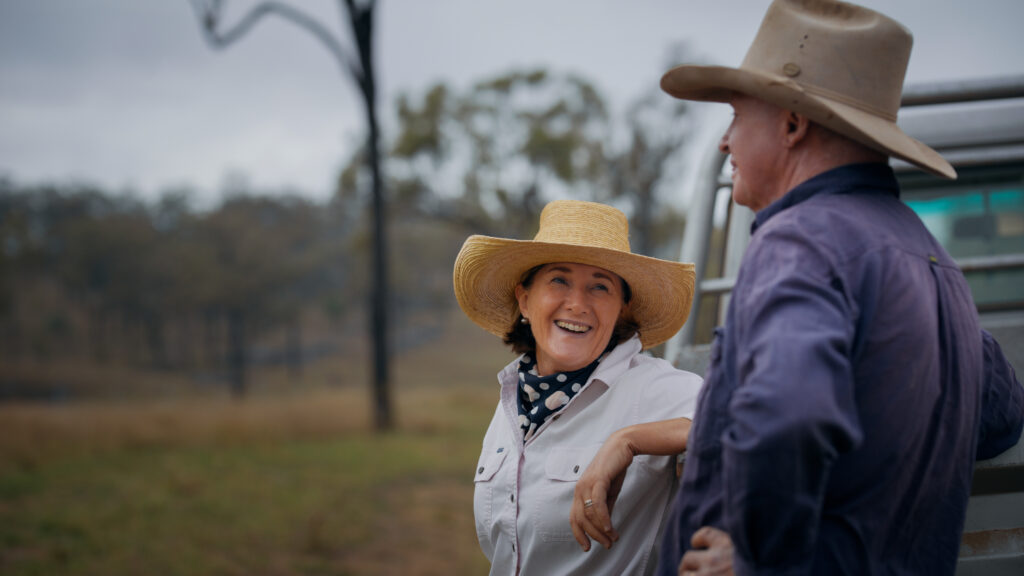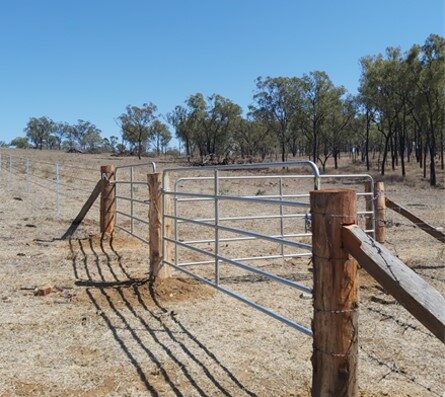Farm resilience planning results in extensive property improvements
Running a grazing property requires a delicate balance to keep the paddocks and herds in top condition. Megan and Terry Dunne operate Shawlands, a 3,800ha commercial breeding and backgrounding property in the Biloela district in Central Queensland.
They, along with their children, have made significant property improvements through rotational grazing, pasture species composition and infrastructure development.
Their participation in the Farm Business Resilience (FBR) Program has allowed them to mitigate climate variability risk by improving carrying capacity and land utilisation.

Megan said the process of creating a Farm Business Resilience Plan, part of the FBR program, required significant thought and effort but the result ensured that their drought resilience projects were well planned and tailored to their business.
“Our business plan is still utilised during planning meetings,” she said.
Creating a FBR plan was the first step in a series of improvements including converting a 1,354ha parcel of land into 5 smaller paddocks and improving water reticulation to support a second rotational breeder mob of about 130 head, a 10 per cent increase.
“The resulting quality and quantity of pasture in the additional rotation paddocks has enabled the breeder herd to maintain high reproductive rates,” she said “The expansion of our rotation system to encompass the entire 400 head breeder herd will also ensure a swift post-drought recovery, with the retention of the nucleus breeder herd during dry times and the pastures re-generating quickly when the rains finally arrive,” Megan said.

Megan and Terry successfully applied for two Drought Preparedness Grants through the Queensland Rural and Industry Development Authority (QRIDA) for fencing, troughs, water tanks and a hay shed.
The FBR planning and grant application process was a collaborative effort between the Dunnes, the Department of Primary Industries, Rural Solutions Queensland and QRIDA.
“The process of planning and implementing these improvements has given us confidence that our grazing systems and associated infrastructure suits our business model and we feel more prepared to handle future droughts,” Megan said.
View their story in this short video.
The Farm Business Resilience Program is jointly funded through the Australian Government’s Future Drought Fund and the Queensland Government’s Drought and Climate Adaptation Program.